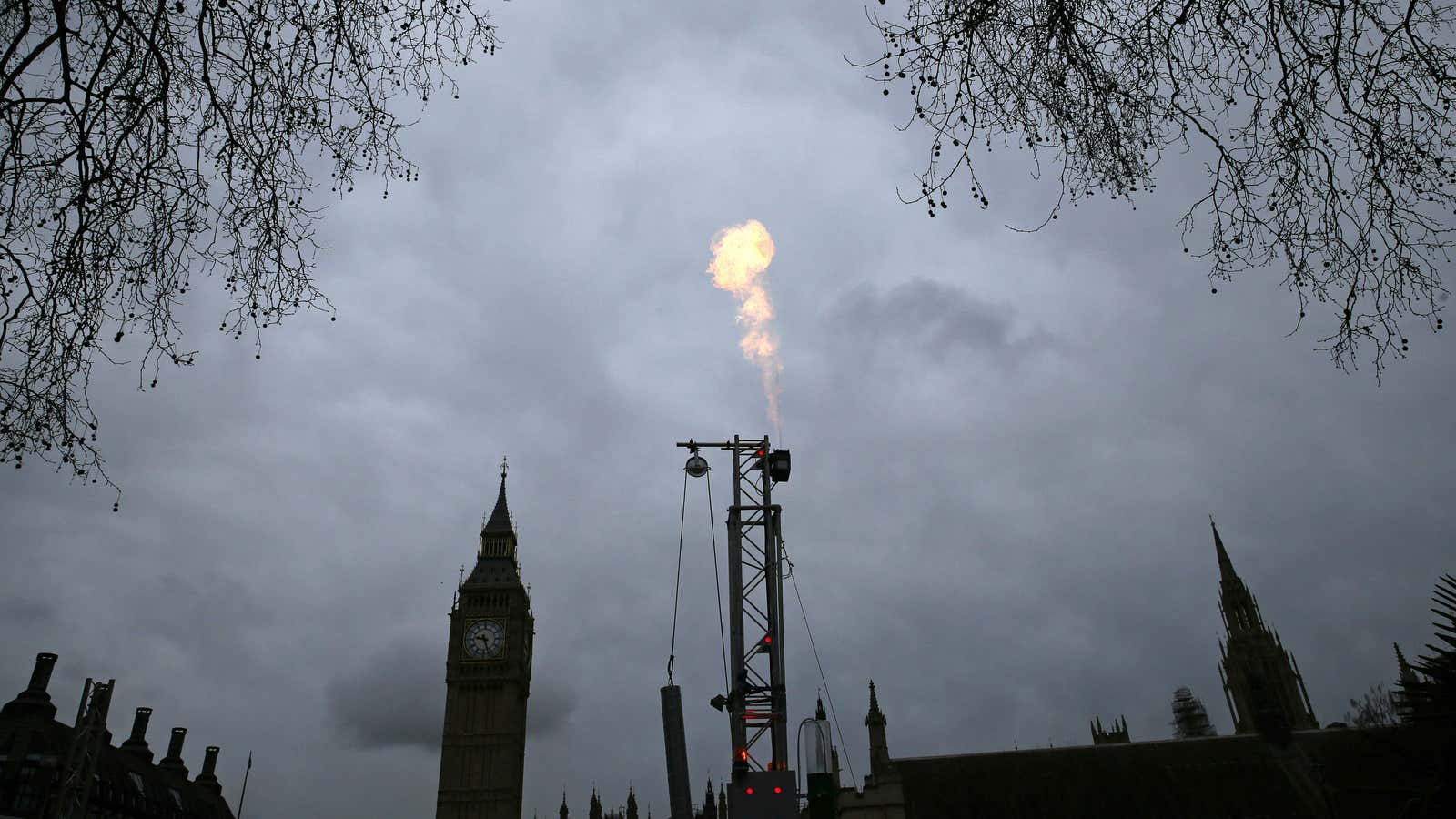For 90 minutes on Oct. 7, the US vice-presidential contenders sparred on stage about whether Democratic candidate Joe Biden would “ban fracking,” a charge lobbed as political dynamite across the aisle. Kamala Harris, Biden’s vice presidential nominee, refused it in no uncertain terms.
“The American people know that Joe Biden will not ban fracking,” said Harris. “That is a fact. That is a fact.”
The political debate over what the US should do about fracking, the oil extraction technique that has transformed the country into an oil exporter, is explosive. The Biden climate plan has been called the most ambitious ever for a major party’s campaign. Yet every time the Biden-Harris ticket has the opportunity to come out fully against fracking, they have refused.
The reason why is simple. Biden’s campaign isn’t calling for a ban because it tempts political suicide in swing states like Pennsylvania and Ohio where fossil fuels still rule. And the political risk isn’t even necessary: Government leaders may not have to ban fracking, because the economics will likely do it for them.
Fracking has long been seen as America’s answer to its foreign oil addiction. The drilling technique, which uses horizontal rigs to fracture shale rock and pump out the oil under high pressure, has created a petroleum boom, opening up fields from North Dakota to Texas. More than half a million jobs in key states including Ohio, Pennsylvania, Colorado have been created by the industry (if even many of those are gone amid the pandemic).
Yet it’s also unleashed a climate problem. By venting huge amounts of methane into the atmosphere, and generating vast amounts of contaminated groundwater (some of which may pose a health risk), oil fracking wells are seen as a major barrier to a stable climate, despite its role in displacing even dirtier coal. From 2016 to 2018, US oil and gas emissions rose 13%.
For some on the left of the Democratic party, including Bernie Sanders and Elizabeth Warren, a fracking ban is an essential step toward meeting the country’s climate commitments. Biden, like other moderates, prefers tighter regulation of its health and environmental risks.
That resistance to an outright ban may come from the ghosts of campaigns past. In March of 2016, Hilary Clinton told an Ohio town hall that her policy to bring clean renewable energy and economic opportunity was “going to put a lot of coal miners and coal companies out of business.” She came to regret those words (“the point I had wanted to make was the exact opposite of how it came out,” she wrote), but it was too late. The words were used to bludgeon Clinton’s election chances in must-win blue states in coal country.
In the Democratic leaning states of Michigan, Minnesota, Pennsylvania, and Wisconsin, a 2019 poll found 54% of swing voters were opposed to a ban on fracking.
Clearly, Biden and Harris will not make the same mistake. But neither do they have to. The economics of fracking, and the energy transition, will “ban” fracking for them.
The US fracking industry has never made money. Since 2010, US shale oil producers have recorded negative cash flow every year while promising investors future profits. They never delivered. For the last decade, as the industry plowed more and more money into raising production, prices fell as overcapacity saturated the market.
During the pandemic, the situation has worsened. With demand falling at least 20%, oil prices fell far below what US producers needed to turn a profit. The industry is now staring into the abyss. Money-losing wells are shut down, and a mountain of debt is coming due ($133 billion between now and 2026).
Banning fracking may not just be bad politics—it may not be feasible. Most drilling isn’t even on federal lands; the vast majority is on private and state holdings. “You would have to pass new legal instruments and I don’t think it’s credible that you’d be able to get that through the US Congress,” says Jonathan Elkind, a senior research scholar at Columbia University’s Center on Global Energy Policy.
The real solution? Burn less oil and gas. If US customers demand fossil fuels, it will be supplied. Fracking has shifted much of the production to the US. But shutting down the fracking industry will shift oil and gas production elsewhere, leaving the world to clean up the same climate mess.
If Biden’s campaign is taking notes from Clinton’s gaffe, it could pull one more lesson from coal country.
The industry is now entering a death spiral: No new coal plant will likely be built in the US ever again. But the coal era didn’t end because the US banned coal. The price of burning dirtier fuels rose until it was no longer economical in most parts of the country. Alternatives became so cheap that renewable energy production exceeded coal for the first time. Governments, customers, and even financial institutions began to demand utilities phase out coal.
The coal era ended because political and economic forces conspired to end demand. The most effective way to ban fracking will be to do the same.
